I receive many questions about oils for skin care, so I wanted to take some time and dive into the MOST frequently asked questions about using oils in your skin care routine.
Doesn’t my skin produce enough / too much oil already?
First, our skin needs those naturally produced oils for several reasons. The production of natural oils, including sebum, helps to maintain the barrier function of your skin and minimizes water loss which helps to keep your skin healthy and hydrated. A healthy balance of skin oils and hydration contributes to your skin’s strength, elasticity, and proper functioning.
An important thing to remember about your skin is that its main function is to protect your body from the outside world. A major component of the skins’ protective mechanism is called the skin microbiome. The microbiome is made up of microorganisms that live on and help protect your skin. One of the functions of the microbiome is to maintain a mild acidity that helps protect your skin from the environment. If microbiome protection breaks down and is not functioning properly, this is when you’ll start to see problems arise with your skin. So it’s really important when addressing skin problems to work on building a healthy microbiome so that your skin has that protection.
So, there are a number of things that contribute to the oil production in your skin. Genetics is one – you may have noticed that other members of your family deal with similar skin issues, whether that be oily or dry skin. Your physical activity – because when you perspire your body produces more sebum. Where you live – because the humidity level and temperature of your environment will play a part in how much oil your skin produces. Your diet – because certain foods tend to create increased sebum production. Things, like eating a lot of sugar, or eating certain types of fats or oily foods, can be a factor. Also, some processed foods can speed up the production of oils. While this may not always be a bad thing, you’ll want to make sure it’s in check. So getting the right kinds of oils and fats in your diet is going to help you balance your skins oil production without creating excessively oily skin.
Finally, your hygiene practices play a major role in balancing the amount of oil your skin produces. If you’re using cleansers that remove protective oils and dry out your skin, you actually could (even though you’re genetically predisposed to oilier skin) end up with dry, or flaky skin. If you have sensitive skin, your barrier function may be compromised further by using these types of cleansers, which may produce even more skin reactions. Ultimately, using cleansers that dry and strip those natural defenses will leave your skin vulnerable to premature aging.
So, it’s all about balance. Ideally, you want to use cleansers and skincare oils that are formulated to help balance your skin’s natural oils and promote healthy, hydrated, and glowing skin that supports aging gracefully.
What are some common misconceptions about oils?
One of the biggest misconceptions is that using oils in skin care is bad for those with oily skin, because they already have too much oil on their skin, or using oils will cause breakouts. Well, that’s not really true. The right kinds of oils for your skin can be very beneficial, even for oily skin. In fact, the right kinds of oils are good for all skin types.
Oftentimes, people with oily skin think their skin needs to be free of oils. So, they’ll mistakenly use cleansers that strip the skin of those natural oils, which can be very harmful. Foamy cleansers that make your skin feel squeaky clean can be damaging. Not only do these cleansers remove beneficial oils, but they cause an imbalance in the natural pH of the skin. Remember, the skin has a naturally mild acidic pH and these types of cleansers can compromise your skin’s barrier functions, which are protecting it from the outside world. Proper barrier function is crucial to keeping the skin healthy, free from problematic breakouts, redness, and irritation, so it’s really important to take care of it. Rather than stripping your skin of oils, you want to use the right types of oils to create balance.
Another myth is that people with sensitive skin types should avoid using any type of oil, but it depends on the type of oil. Of course, with sensitive skin, the focus needs to be on protecting the barrier functions of the skin and fortifying it with all the nourishment it needs. This process can most definitely benefit by including some great plant-based oils. But the thing is, the compromised barrier functions of sensitive skin leave it more prone to reacting to certain types of oils. For example, sensitive skin types might have problematic reactions with essential oils. So it’s always a good idea, if you have sensitive skin, to do a skin patch test on the inside of your elbow or the underside of your jaw, where the skin is very similar to your face. That way you’ll know if you have a problem with a certain type of oil or skincare product.
Another misconception is that you have to use the same application of oils on all skin areas. So most people know that the skin on your face is different than the rest of your body, but the skin on the various areas of your face is also different. Areas around your eyes are different than the skin on your cheeks or around your nose. So depending upon how much oil production you have in different areas, you’ll want to change the way that you apply, or even the types of oils, to account for the differences. When it comes to areas around the eyes for example (because those don’t tend to be as dry) I often will have people mix a plant-based oil with our step two NOURISH Antioxidant Serum or something that can help with that specific area. The truth is that all skin types need oils- they just need to be the right kinds of oils.
Oils act as emollients for the skin, helping hydrate, soften, and balance the skin with a physical protective layer. But a common misconception is that using skincare products with a single type of good oil will fully moisturize and protect your skin. Really, your skin needs a combination of oils because the molecular size of each specific oil will determine how it helps the skin. For example, oils with a larger molecule size will act more as occlusives, meaning they sit on the surface of the skin and don’t absorb as readily, but they trap moisture in. Whereas oils with a smaller molecule size can penetrate the skin more easily and add moisture directly to the skin. Using a skincare product, such as Glow Boost which contains a high quality blend of natural organic plant oils (such as cranberry, pomegranate, raspberry seed oils) will provide maximum benefit from the oils you use on your skin.
When did you (Dr. Cates) start using oils?
When I was a kid, I grew up on an organic farm and my family used all-natural products. They were really into natural everything, and I remember using oils on our skin like almond and apricot oils. I remember the smells and enjoying the way that they felt on my skin. I also recall my Dad would open up vitamin E capsules and put them on his face. I know it sounds crazy cause it’s so thick, but he would just put it all over his face. He would say that he felt it was helping hydrate his skin and helping him keep a more youthful appearance, and actually, until the end of his life in his late seventies, he really did have beautiful, youthful-looking skin for his age.
So now as an adult, probably about six, seven years ago, I started to do more research on skincare products and I learned a lot about the science behind natural ingredients, and how fatty acids can help protect, hydrate, and nourish the skin. I realized that so much of what my family did for skin care when I was a child had so many benefits and that all of those things had true benefits, including the antioxidant rich Vitamin E my dad used to put on his face.
How do oils help your skin?
The key with facial oils is using the right ones, not all oils are going to be beneficial for your skin. This is really important to understand, it’s similar to food. As you probably have heard me or other skincare experts say- there’s some fats and oils in our diet that are healthy, like extra virgin olive oil and avocado oil, and some that aren’t, like trans fats and processed oils. Well, for the skin it’s similar – some oils are going to be bad for the skin and some are going to be beneficial and hydrating.
For example, when it comes to the skin, mineral oil is one that you’ll find in many, many skin care products, but I really recommend avoiding it because the problem with mineral oil is it comes from petroleum (which by the way is also where gasoline comes from). So there are many concerns when it comes to using mineral oils on our skin. Mineral oil causes reactions in many people and contains impurities that are bad for the skin. But companies and manufacturers will use mineral oil in skincare products because it is cheap and has a long shelf life. That’s not what you want to be putting on your skin, as someone who cares about your skin and manufactures natural skincare products, I certainly would never use any petroleum products because here are other natural oils, that are much more nourishing and beneficial for your skin. So why take the risk if there are so many great plant-based oils?
Another thing to be aware of is to make sure when you’re using plant-based oils to only use pure unadulterated plant oils. These are the oils that are going to help provide fatty acids and support the skin barrier function, the skin microbiome – those good microorganisms that live on and protect your skin. The right types of plant-based oils in skincare products, such as Glow Boost, are in a balanced blend that will hydrate, protect, and nourish the skin without feeling heavy or sticky.
What common skin issues do oils help improve?
Plant-based oils are great for all skin types and for many different reasons. They help hydrate dry and maturing skin with essential fatty acids. They are also great for sensitive and irritated skin because of how gentle and soothing they can be in building up and supporting the barrier function of the skin. And this might surprise you, but for people that have oily skin, they are also wonderful plant-based oils that are exactly what oily skin needs. So, for those of you who know your skin type, and I’m talking about The Spa Dr. skin personality types: Amber, Sage, Olivia, Emmett, and Heath, I get a lot of questions about which oils are great for each, and how oils can help improve each of these skin types. (If you’re not familiar with your skin personality type, you can go to theskinquiz.com and find out).
So for Amber skin type, the right kinds of oils can be so helpful to even-out your skin tone. For Sage skin type, the right plant-based oil will help hydrate your skin and help smooth the appearance of fine lines and wrinkles. It will also help reduce the dullness that a lot of Sage skin types have. For Olivia skin type, oils can help balance the sebum production in the skin with the right kinds of nutrients from those plant-based oils. For Emmett and Heath skin types, oils help soothe and reduce the irritation.
Personally, my skin tends to be dry because of where I live, and I’m 47. My skin loves a good plant-based oil blend and I tend to be more of an Emmett skin personality type, so I understand the reactivity. Emmett personality skin types tend to be more reactive and have problems with irritation and have sensitive skin. So it’s really important for me to use the right kinds of oils that are not going to be reactive. I also understand the importance of supporting the skin barrier function both from the inside-out and from the outside-in. That’s why I named The Spa Dr. oil blend “Glow Boost” because it helps give my skin an extra glow, even though my skin tends to be dry and I’m 47, my skin is not getting any younger- it’s getting older. I love having the Glow Boost, which is a plant-based oil blend that is 100% oils. I keep an extra bottle in my purse, and I apply it throughout the day, I use it on my face, I put it on my hands, and I even use it on the ends of my hair. Because I love the way that it both hydrates and protects.
What happens if you don’t use oils (or use too much oil) in your skin care?
If you skip plant-based oils, you’re missing a really important hydration step. Using too much of the wrong oils, you may notice your skin will be too shiny or sticky and oilier than you like. Olivia skin types may notice or tend to be oily in your T zone, it’s a matter of using oils properly. If you’re an Olivia skin type, and you notice that especially at the T zone you get oilier skin, then I suggest focusing on using the oils in areas where your skin is drier. Usually, even Olivia skin types or oilier skin types still have certain areas of their skin that are dry and need oil.
Focus on blending the oil with the step two Antioxidant Serum NOURISH or something similar (which is not as oily) to use on the oily areas, then you can use the straight oils in the other areas where your skin isn’t oily. The key is that you don’t want to avoid oils entirely. You also don’t want to strip your skin of those beneficial oils using a harsh cleanser or a foaming cleanser. You just want to make sure that you’re using the right balance, that you’re using a system for skin care that helps support the oil production of your skin without stripping it, or without making it increase oil production.
Are there different types of oils for skin care and if so what makes them different? Or are they all the same?
There are different types of oils used in skin care. Essential oils, plant-based oils (both unrefined and refined), animal-based oils, completely synthetic oils, and there are a combination of those and they’re not all made the same. So let me go through each one of those and explain how they are made.
ESSENTIAL OILS
Essential oils are the ones that are heavily concentrated oils. You’ll notice that these oils tend to be very fragrant and so they’re oftentimes used in skincare products to help create a natural scent, but they also have therapeutic value and each essential oil has a unique therapeutic value. For example, you may be very familiar with lavender essential oil. It’s a very popular essential oil that’s used to help people with relaxation. A lot of times people will put it in their bath at bedtime to help calm down and relax.
Another popular essential oil is eucalyptus, which helps open up the airways, helps people with breathing, and is sometimes be used in diffusers. It’s also used in skincare products. Another example, tea tree oil is one that a lot of times people that are breaking out in acne will tend to use to help with that. Or it’s also helpful sometimes with fungal infections. It’s important with essential oils to use them properly and carefully, and most of them, especially tea tree oil, shouldn’t be used directly on the skin and should be diluted instead.
PLANT-BASED OILS
The other type of oil that I’ve been mentioning is “plant-based oils”. Now again, essential oils ARE plant-based oils, but I put essential oils separately because they’re very, very concentrated and you only need to use a few drops (or only one drop) in an application of skincare products or they’re blended already into the other types of oils. So with plant-based oils, you’ll find that these typically come from the kernel or the seed of the plant like apricot kernel oil or pomegranate seed oil.
Those types are plant-based oils. Avocado, coconut, almond, there are many, many plant-based oils. These are the ones that are used in natural skincare products that I love. But here’s the thing, you want to make sure that to get the really beneficial effects of the nutrients in these oils that are naturally occurring. So you want to get the unrefined, the pure, extra virgin kinds of these oils and you want to make sure that they’re organic as much as possible. Essential oils are the same in that you want those all to be very pure. You want them to be organic.
The thing is plant-based oils are sometimes refined to help manage and control things like the scent of the product and the consistency and texture. Because in nature one plant can be very different from another. So it can make it difficult for manufacturers to create an experience for the customer that’s consistent because they might get one batch that is different than another. Just like in nature, you’ll find that if you have five avocados that you’ve gotten from five different locations and you open them up, you’ll find that each one of them has a different consistency. It feels different, it smells different, the oils feel different. You’ll find it the same with natural plant-based oils- one batch might be different from another. So a lot of times companies will refine them to help ensure that the customers experience the exact same smell and experience from one batch to the next. At The Spa Dr. we find the unrefined oils to have more of those therapeutic benefits. They’re going to have more of the nutrients that naturally occur in the plants, so we prefer the unrefined, extra virgin, cold pressed oils. We also find that it’s very important for essential oils to be purely organic.
ANIMAL OILS
Another type of oil that I want to mention is animal-based oils. Now you might be kind of surprised to hear that there are animal-based oils, but there are! An example of that would be emu oil and emu oil comes from emus. So if you are vegetarian or vegan or it just does not sound right to you to be using animal-based oils, that’s perfectly fine. We only use plant-based oils at The Spa Dr. and we don’t use any animal-based oils, but in my skin care regimen, I do. There is some information in literature as well as research that emu oil can be helpful with wound healing and repair. Since it can be beneficial and have therapeutic value, I don’t want to skip over that one. Now there is a completely synthetic version, you know, more like the mineral oil or petroleum-based products. So that’s NOT the version that I recommend because of the concern of impurities and people having reactions to them.
COMBINED OILS
Lastly, there are combinations of oils, and they could be a combination of any of the ones above that I just mentioned. So for me, if I know that it includes a synthetic oil I have to avoid those. I don’t recommend any of the synthetic. But you know, when it comes to the combination of plant-based oils and essential oils, I do think that there are some great therapeutic benefits.
How do you know if an oil is bad?
One thing you want to watch out for oils is that they can go bad. They can become rancid when they become oxidized, when they have been sitting around, if they’re past their expiration date, if they haven’t been stored properly, if they were heated up when they were being stored or if they were in direct sunlight for a long period of time they can go off. Especially the ones that have plant-based oils that are unrefined. Those extra virgin oils, they can go off and really all oils can get rancid. Usually, you can tell by the odor and consistency.
If that happens, change the products. Especially if you get the products fresh and that bottle has been sitting around and maybe you haven’t stored it properly, or it’s past the expiration date and you open it up and it’s very strong smelling. So if you notice that, or if you’re feeling like your oils may be rancid, you don’t want to use them. You don’t want to use them if they have gone rancid. I have a really strong sense of smell, but if you don’t you might want to check with other people and say, “Hey, do you think this smells bad too?” Also, sometimes the oils when they go off, they’ll get stickier. You don’t want sticky oils so that’s one thing to watch out for. The oils that you’re using on your face should have a nice smooth consistency and absorb easily. Notice the smell, the appearance, or any changes. It’s particularly important to check the expiration date if you’re using plant-based oils that are unrefined.
How do you know if an oil is good?
I want to share with you some information about what to look for in good oils. You can know if a plant-based oil is good by its ingredients, so make sure you’re looking over the ingredients carefully because you don’t want any toxic ingredients added in with your oil. You want it to be pure, you want to check the way it smells, and look at the color. In fact, the color can show that it’s rich in antioxidants when it has that deeper richer color oftentimes that means it’s rich in antioxidants.
You can also smell it and the odor, or the fragrance of plant-based oils is typically a nuttier kind of smell when it’s pure oil. It should have some sort of natural odor or fragrance to it, and it should be pleasant. Of course, the smell really varies from one batch to another of unrefined plant-based oils. For example, we use camellia oil in some of The Spa Dr. products so in one batch of the moisturizer the smell may be slightly different than the next because of where we source it. Even if a particular batch that we source is from the same location, it can still smell different. It may be a variation in the farming practices, the soil, or from the particular seasons’ temperature and rainfall. There are all kinds of things that play a role in the way that plants grow. The end result is from what’s naturally occurring, and what’s naturally occurring in those plants can really vary. So if you’re getting your oils from a really reputable source, then they should be making sure that it’s pure, it’s clean, and it’s the experience that you want to have.
What oils do you (Dr. Cates) use for your skin?
Now I want to share with you my top five favorite plant-based oils. These are my absolute favorite for myself personally, for my patients, and my followers. I love to choose these organic because one of the things to think about with organic is that when you are using an oil from a plant, you’re extracting a lot from that plant. So it’s best to use organic so that you’re not pulling anything that might be in the plant that isn’t pure (like pesticides used on the plant) that then ends up in the product. So choosing organic is SO important.
CRANBERRY SEED OIL
The first one is cranberry seed oil. Cranberry seed oil I love because it’s extremely lightweight and it’s able to absorb easily without clogging your pores. So this makes it great for all skin types because it’s lightweight, it’s easy to absorb, and it doesn’t clog pores. So all of The Spa Dr. skin personality types (Olivia, Amber, Sage, Emmett, and Heath) can benefit from this oil. It’s rich in antioxidants and it’s rich in vitamin E, which we know is so hydrating and nourishing to the skin. It’s high in naturally occurring vitamin A which is also very beneficial for the skin phytosterols phospholipid, which nourishes our skins’ needs, and it has a natural ratio of Omega six Omega three and Omega nine fatty acids. We need those fatty acids for that barrier function of the skin, that lipid barrier, that protects the skin. Cranberry seed oil can help provide some of those essential fatty acids your skin needs and help with moisture retention. It’s one of my very favorites.
POMEGRANATE SEED OIL
Another favorite is pomegranate seed oil. If you haven’t found this one yet, it’s a great one. It’s also packed with antioxidants and the rare Omega five essential fatty acid. We need these fatty acids for our skin. It also has regenerative effects for the skin, repairing the skin, evening the appearance of skin tone and smoothing the appearance of fine lines and wrinkles. So, of course, one of my favorites as a 47 years old woman, I certainly love those effects that it has.
RASPBERRY SEED OIL
The third oil is raspberry seed oil. I absolutely love raspberry seed oil. It’s high in tocotrienols, offers the skin a broad spectrum of protection from the damaging effects of UVA and UVB rays and provides us great protection for the skin. However- this is really important, this is NOT to take the place nor is it the equivalent of using a properly formulated SPF sunscreen, so I want to make sure that’s very clear. There are many factors involved in making sunscreen and having it work properly. I’m not saying raspberry seed oil takes the place of sunscreen, so you still want to use sunscreen, but I am saying that there are naturally occurring protective benefits in the plant.
ROSE HIP FRUIT OIL
The fourth one, my absolute favorite is rosehip fruit oil. If you’re not familiar with what rosehips are, when you see the rose plant when it’s in a cycle on the rose plant, the rose itself has this sort of a bulb-like part of the plant and that’s where the rosehip comes from. It’s not the rose itself, but it’s the rosehip, so it’s high in unsaturated essential fatty acids. Rosehip fruit oil contains beautiful naturally occurring antioxidants like omega-3 six and nine and it’s also high in vitamin A, beta carotene, and lycopene. Rosehip fruit oil is known as a regenerate, helping regenerate damaged tissue. So for skin that’s been burned or stretch marks, many people ask me “What’s a good oil for stretch marks?” this is one of those oils. It also helps protect against signs of sun damage, scarring, and wrinkle formation. A lot of people also ask me what can help with scarring and this is one of my favorites for really helping regenerate and protect the skin.
APRICOT KERNEL OIL
The fifth and final of my favorite plant-based oil is the Apricot kernel oil. Again, I love making sure that all of these are organic. Apricot kernel oil is rich in vitamins A, C, and E as well as minerals and Omega six and Omega nine fatty acids. It’s got a nice lightweight consistency and it absorbs fast without leaving any kind of greasy, after-feel so nothing is sticky or greasy. It’s suitable for all skin types, even the most sensitive ones. I like having apricot kernel oil as one of the base oils for plant-based oil combinations, it’s one of my absolute favorites for this. It’s also soothing, repairing, revitalizing, nourishing and softening for the skin. So absolutely make sure that you have apricot kernel oil.
Should you look for oil-based products, or for products with oil ingredients? Is there a difference?
Whenever I look at a plant-based oil blend, I like to look for other ingredients that are making sure that the oil stays fresh, because as I mentioned with plant-based oils, especially those that are unrefined, it’s important to make sure that they stay stable. So a couple of ingredients that I like to look for in and that I include in my products are tocopherol, also known as vitamin E. At The Spa Dr., we use a mix of tocopherols made from GMO free sunflower oil. We find that that’s the best source of vitamin E so that’s what we use at The Spa Dr. and so it helps provide antioxidant protection to oils, keeping the products fresh. Vitamin E itself is known for its wound healing effects and as a potent antioxidant and an excellent skin protector. So I love vitamin E and it’s great for a plant-based oil blend.
Organic Rosemary leaf extract is ideal for helping keep formulas fresh and maintaining. It also has its own benefits for the skin, helping with the skin suppleness and making it soft and so I love the fact that we can use nature to help support nature. We don’t have to use synthetic ingredients to help preserve oils or to preserve any skincare products. We can look to nature with things like this to help preserve that combination.
I love the five that I mentioned and that’s what we use to create The Spa Dr. step four, “Glow Boost“. We carefully selected each one of these in combination together because individually they have potent effects, the antioxidants, the fatty acids and the fact that they’re organic. Individually they have these powerful effects and then when used in combination, these five together are magical. Some of the oils are a little bit thicker than others, but when you use the lighter oils in combination with the richer oils like in our Glow Boost, it creates this amazing combination and you can see it in the richness, and feel it in the consistency. Now you can find these oils individually, but I do like a nice combination of oils as we have in the Glow Boost.
Not all skincare products made with oils help your skin. I’m not saying across the board, all oils are good for the skin. Some oils blend well together, some don’t. Some oils are okay to use alone and some are best to use in combination. It also depends on the other ingredients that are used in the products. So it’s really about the formulation and the raw ingredients and you want to make sure that the plant-based oils are pure, they’re clean, and they’re extra virgin unrefined if possible.
Now when you’re working with oil, remember not all of them work well together. Some are thicker and some are thinner, and you want a combination of those when you blend them. You also want to think about your skin type. I talked about five oils that are my favorite oils for skin and those are good for all skin types. Now when it comes to individual oils, there are certain ones that you want to make to be careful with to use caution with. For example, when you’re looking at something like the essential oil tea tree oil, you don’t want to just use that undiluted directly on the skin. You want to use it in combination with other oils. Essential oils, in general, should be used in combination rather than alone when it comes to direct skin care use.
Oils like coconut oil tend to be very thick when at room temperature, so using coconut oil alone on the skin can be difficult for certain skin types because of how thick it is. For people that tend to have oily your skin (the Olivia skin personality types), I don’t recommend using straight coconut oil, especially on your face or areas where you tend to be oilier and where you tend to break out. Now that doesn’t mean that you shouldn’t use coconut oil. Coconut oil is a fantastic oil and this is something that I get asked quite often. “Is coconut oil good for the skin or not?” And absolutely coconut oil in the right form and the right balance is great for all skin types. It is very hydrating, it’s very nourishing, it’s rich and it’s great because of the consistency of it. However, I don’t recommend using it straight because it can be rough for people with oilier skin instead of using it in combination with other oils.
When it comes to coconut oil for skin, it’s really important that you’re using a pure unrefined extra virgin form of the coconut oil. Organic is preferred if you can get it, that’s always preferred when it comes to oils. Organic is always best because of the purity, the being unrefined, as well as being in blend in combination with other oils. Now if you’re not an Olivia or an oilier skin type, you might be able to use it straight without being in a combination, but I wouldn’t necessarily recommend just using it on the face. I would use it on the rest of the body. It can even be great for using as a scalp or hair treatment. But when it comes to the face, I recommend doing like we do with our step one cleanser and using it as part of a really beautiful formula.
Is there a right and wrong way to use oils in your skin care routine?
These are the things that people will want to think about when blending or using individual oils:
Is it okay to use them individually or is it too strong?
Is it too thick? Is it too sticky?
Is it right for your skin type?
This is why I prefer to use the oils in combination and not just one straight oil. Now there are exceptions to that, like if you’re doing a massage. Almond oil is great for doing a body massage and using on the body, but I do think overall it’s nice to use a blend.
Mistakes that people often make are by using the wrong oils and the wrong concentrations. You don’t want your skin to feel sticky or greasy, that should not be your experience using oils. If you are having that experience with oils then you’re not using the right blend or you’re not using the right oils for your skin. One thing you can also look for is moisturizers with oils and those are fantastic. I love that you can find moisturizers with plant based oils and you can find 100% oils, both are great. Just be sure to look at the ingredient list and make sure that the moisturizer, in particular, doesn’t have any parabens, fragrance or other endocrine disrupting chemicals, or hormone disrupting chemicals in them or in any of your skincare products.
Other harmful ingredients like dimethicone is one that’s used in a lot of even “natural” skincare products as an occlusive to trap moisture in. There are concerns about what this ingredient might be doing to the skin microbiome- all those microorganisms that live on and protect the skin can get out of balance from the use of dimethicone, because of how it traps in moisture and doesn’t allow the skin to breathe like the way natural plant-based oils can.
What’s the EASIEST way to add oils to your skin care routine?
I want to give you some tips on using plant-based oils especially when you’re using them on the face. First of all, what I love to do is to make sure the oils are at room temperature. If you’ve been outside, if you’ve just got a shipment and you live somewhere cold, you want to make sure that you warm the oils up at least to room temperature. If you want them a little warmer, you can also just warm them in your hands. So what I will oftentimes do with our Glow Boost is do an application in my hand, and then just warm the oils up in my hands by rubbing them together, hold them in your hands, and then you want to press them into your face so that they absorb in the areas where you want them.
If you have an oily area, maybe your T zone, then you avoid that area with the plant-based direct oils (unless you feel like you can use that hydration), by just pressing it into the areas where you need it. Now after you press them, then you can do more of the sweeping motions and blend it in with the other products that you’ve been applying to your face. You can also mix plant-based oils with other products. So for example, at The Spa Dr. I oftentimes recommend people blend our step four, our plant-based oil blend Glow Boost with step two, our Nourish antioxidant serum. This makes a nice combination and the oils aren’t quite as thick and as strong, especially in areas like around the eyes.
I think it’s important to just really understand when you’re using plant-based oils that it might take a little time to get used to them. So if you haven’t used plant-based oils, experiment with them, use them in different areas of your face, try them in combination with other products and experiment with them. A lot of people ask me about their children, so maybe you have a teenager or children in your home and you’re wondering about skincare products for them. I think it’s important for educating girls early on and boys too, about the proper use of skin care because at some point they’re going to start using products. If you can introduce them to natural products before they start getting introduced to products by their friends, then that’s a great way to educate them and to get them on board with using more natural products, and understanding how to use them.
A lot of times teenagers are going to be more prone to acne. So again, educating on the use of plant-based oils, they absolutely can benefit from them and use them. It’s just a matter of using them properly and maybe combining with other products that will help with balancing the oil production in their skin and making sure that they understand you don’t want to strip your skin. Whether you have dry skin, oily skin, sensitive skin, mature skin, young skin, or whatever, you don’t want to strip the skin. This is one of the BIGGEST mistakes people make because the oils that naturally occur in your skin are there for a reason. They’re there to help protect your skin, help protect the barrier function of your skin, maintain the mild acidity, protect the skin microbiome, keep it healthy, and keep it functioning the way it’s supposed to.
When people are using these foaming, stripping kinds of high pH cleansers, it’s damaging the skins’ natural oil production and the protective benefits that it provides. So make sure that if you educate yourself, help educate others, including your children if you have them. I’ve got three kids and I’ve been working on educating them. I’ve got a son and two girls and all of them use natural skincare products and they are also helping teach others.
What mistakes do people make when using oils?
The biggest mistakes people make when using oils in skin care are around using the wrong oils or using oils incorrectly for their skin type, so I want to go through the five different skin personality types of The Spa Dr. and give some tips on using oils with each skin personality. We have Amber, Olivia, Sage, Emmett, and Heath skin types, and if you don’t know your skin personality type, just go over to theskinquiz.com and you can find out for yourself which of these you are.
Let’s start with the Sage skin personality type. Sage skin types tend to be drier. They’re concerned about aging and that maybe they’re aging faster than their friends around them. So if you are a Sage what we want to do with plant-based oils is to make sure that we’re using them to hydrate, protect, and nourish the skin. So plant-based oils are fantastic for Sage skin types! You shouldn’t be afraid to use a plant-based oil directly on your face and all areas of your skin. But again, if you have any oily areas, you can skip those areas. For example, maybe around your nose, if you tend to be oilier there, then you could just skip that area. Or if you tend to still have oily areas in the T zone, you can blend those with other products. Sage skin personality types do so well with the oil blends and using them straight. I recommend you cleanse first, and I do recommend using an oil based cleanser as well, oil-based cleansers are fantastic for Sage skin types. Then follow with your serum, your moisturizer, and then ending with your plant-based oil blend, as we have at The Spa Dr.
With the Amber skin personality types, they are typically frustrated with blotchy, uneven skin tone, hyperpigmentation or freckles. When using plant-based oils as an Amber skin type, it’s going to be similar to Sage where after you’ve cleansed, applied the serum, and applied moisturizer you can end with your plant-based oil blend. You can also blend your plant-based oil (or step four Glow Boost) with the other steps to give you extra hydration and extra glow. Amber skin types who use our step four Glow Boost, will typically notice an evening of skin tone because of the antioxidants. Antioxidants are so important for the Amber skin types, both internally and externally. Plant-based oil blends can help externally, so make sure you use those liberally. Remember that your skin shouldn’t feel oily or sticky or greasy afterward, if it does you are using the wrong plant-based oils or you’re using too much in certain areas so you may need to modify the way you’re using it.
Olivia skin personality types are going to be more of the oilier skin types and are typically concerned with breakouts, blackheads, and whiteheads. Olivia skin types need to be mindful of using smaller amounts of plant-based oils in the oilier zones. If you’re very oily and you’re breaking out, then you want to skip using the oils just in those areas. Still use it in any areas that are dry or areas that aren’t oily because it can help with balancing the natural oil production in your skin when you’re using the right kinds of plant-based oils. For example, if you’re an Olivia skin type, you don’t want to be using coconut oil straight on your face, so be mindful of which oils you’re using and where, but you still want to use them. You don’t want to miss out on the benefits of plant-based oils. The oils that we have at The Spa Dr. are great for all skin types, that’s why I picked the oils that we have in our products.
Lastly let’s look at Emmett and Heath skin personality types. I’m going to group those two together because usually, Emmett and Heath skin types have more sensitive, and more reactive skin. As an Emmett myself, growing up I had a lot of eczema, irritated skin, hives, itchy bumps and rashes and all kinds of issues with my skin and was really reactive to skincare products. I’m not as reactive as I used to be now because I’ve improved the barrier function of my skin, I’ve nourished my skin, and I’ve helped create that great foundation for my skin from both inside and outside. I talk a lot about this process in my book Clean Skin From Within. It’s a great resource for support and education on how to nourish your skin from the inside out, and how what you’re putting on your skin can help over time in reducing your sensitivity.
Always do a skin patch test if you tend to have more sensitive skin, that’s particularly important for our Emmett and Heath skin types. Just a little on the inside of your jaw is a great place to do it because that area of your skin is more like the area of your face. You could also test on the inside of your wrist or your forearm where the skin is more delicate but inside of your jaw is going to be more like the skin on your face. I recommend you put a little bit of the plant-based oil, wait 24 hours, and then look for any kind of redness, irritation, itching, anything that you might have. If you don’t have a reaction in 24 hours, then you’re probably fine to just put it on your face. Start with a thin application and see how you do with that, and then use more. If you have a reaction then you might be allergic to something that is in the product. Sometimes allergies occur with natural products just like with all skincare products. Whether synthetic or natural, you can react to the products. So it’s always good to do a skin patch test with all of the skin personality types, whether you’re Amber, Olivia, Emmett, Heath, Sage.
What kind of results can you expect when using plant based oils in your skin care?
As you begin using plant-based oils you should start to notice a healthy glow. You shouldn’t feel greasy or sticky, so if you are experiencing that you’re using the wrong type, or you’re using the wrong amounts, so adjust and play with it, enjoy it. With the right plant-based oil blend, (whatever your skin type) when it’s used properly, you may begin to notice right away that your skin feels more hydrated, and it’ll feel softer. If you’re noticing that areas are really oily, maybe just adjust where and how you’re applying the oils, and then over time what you should notice is that your skin tone should become even. You’ll notice the smoothness of your skin, you’ll notice less redness, irritation, the smoothing out of fine lines, and that can take 30 days. You’ll start to notice more improvement after 60-90 days, but keep using the products because consistency is key and it does take time with natural products.
It’s not a quick fix like you go in and get it some sort of procedure in your dermatologist’s office or treatment, it’s going to be different. Natural skincare products take time because you’re building this really important essential foundation for your skin. That natural barrier function of the skin needs essential fatty acids. It needs these nutrients to help support the mild acidity of the skin, and the skin microbiome, which is the barrier function of the skin. Over time your skin is going to be healthier, it’s going to be less reactive, it’s going to be more balanced. Plant-based oils are a really great way to help build up that skin barrier function.
Where can you find good oils for skin care?
Now people often ask me, “Where do I get these?” or “Where do I shop for these?” and there are plenty of places to find good plant-based oil blends. Your local health food store, your local Whole Foods or somewhere similar could be a good place to find plant-based oil blends when you’re looking for them. Remember to make sure that they are organic, that they’re super clean and a reputable brand that you know is testing for impurities that have good quality control.
Believe me, it’s really important because as a manufacturer myself, I know what skincare companies can get away with and it’s really up to the manufacturer to follow these kinds of guidelines. While the FDA and FTC have guidelines for skincare manufacturers, they are not stringent. They are also not particularly stringent when it comes to things like “natural” and “clean”. The word “natural” and the word “hypoallergenic” actually have NO regulations around them. There are no criteria that companies or manufacturers have to meet in order to use the words “natural” or “hypoallergenic”. That is just a marketing claim. So it really depends on the company and their practices, and I know that with my company we have very strict quality control.
We look at all the ingredients that come in and we test every raw material when they come in for purity, stability, and that they are what they say they are. We test each of these things. Then when we finish the product, we test them again and we have practices that we maintain. We look for “organic”, we look for “wildcrafted”, and we look for “free of genetically modified” ingredients. We make sure that our products are free from impurities and we want to be free of any common allergens. All of these are important to us. It’s so important to find oils that come from a reputable source that are doing these kinds of things. It’s not always easy to know and a lot of times you’ll find a brand that you love and then they get bought up by a bigger company and the practices that they had initially maybe aren’t quite the same.
So education is key and that’s why I wanted to write this blog post to help you understand more about using oils for skin care. All of this, the organic, the clean, the quality control, you find at The Spa Dr. we have done the work for you. You can believe that we use clean, pure, organic, oils in the perfect combination that we formulate very carefully with our products using all-natural ingredients. We have oils in our cleanser, our moisturizer, and our step four Glow Boost. We also have our Daily Essentials, which is the four-step system. We have other products too, we even have body products that contain pure plant-based oils. Women love our products and you know, they give us incredible feedback and men love them too, but most of our customers are women of all ages and all skin types.
If you’re looking for the right plant-based oil experience, for a great blend and one that you can trust that to have the purity, the quality, and the results that you’re looking for, go to The Spa Dr. store, get the Glow Boost our step four or even better and get the entire Daily Essential four step system. It’s all you need for daily use, using it twice a day, and it’s got those plant-based oils that are so beautiful; rosehip oil, pomegranate seed oil, raspberry seed oil, and also things like sea buckthorn fruit oil, coconut oil, and argan oil. These are all pure and nourishing for the skin.
I truly hope you’ve enjoyed these tips today. If you have other questions, which I’m sure you will, just let us know, we’re happy to answer your questions and I hope you enjoy the glow that a great facial oil can bring to you.
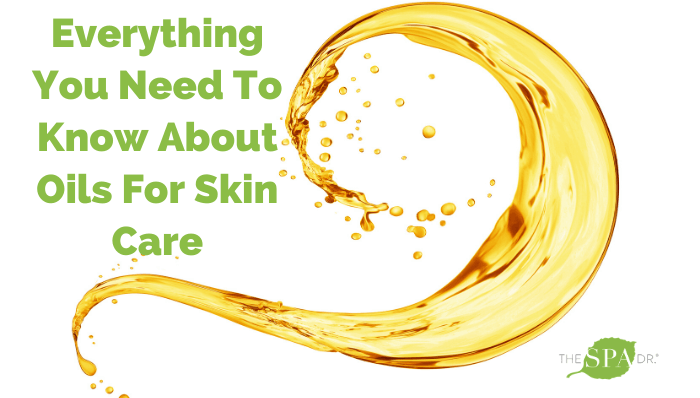





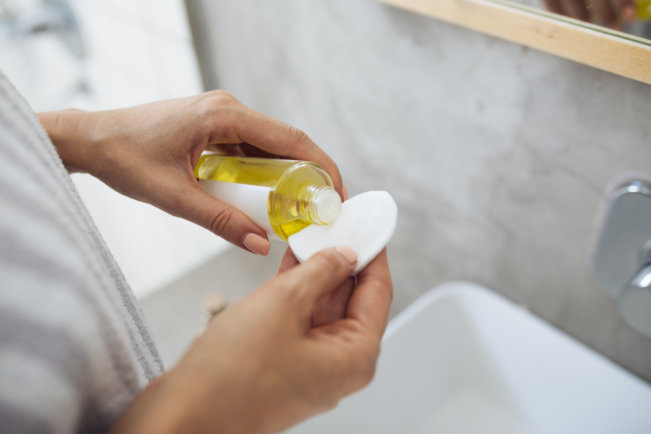
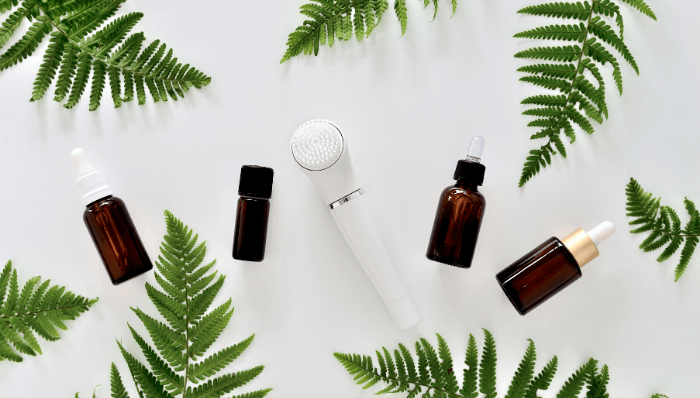

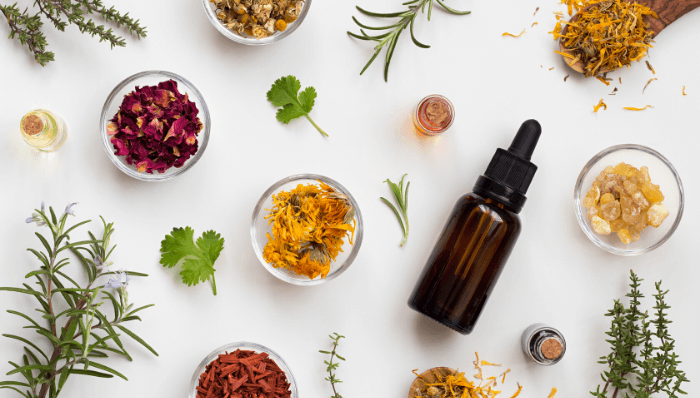
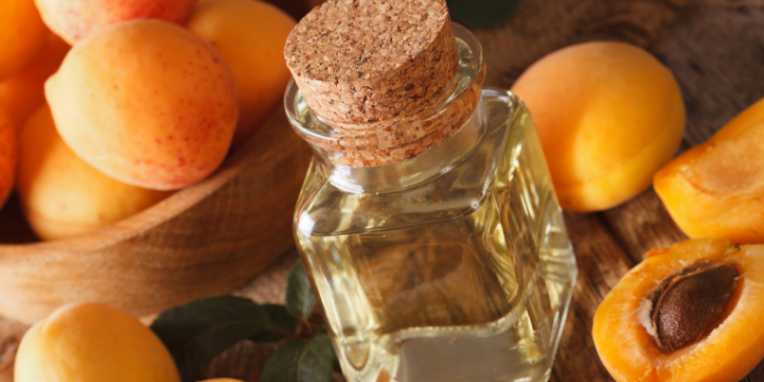
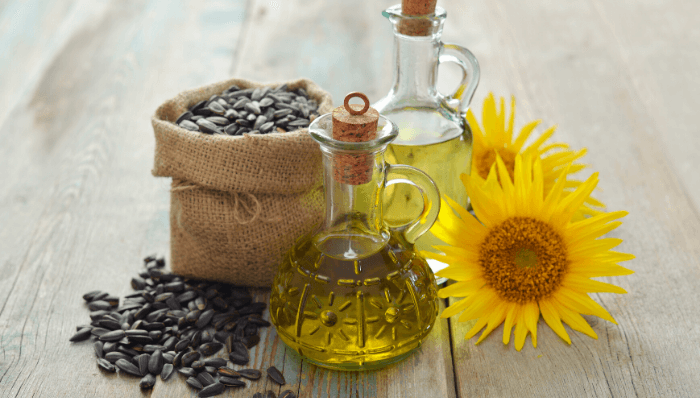
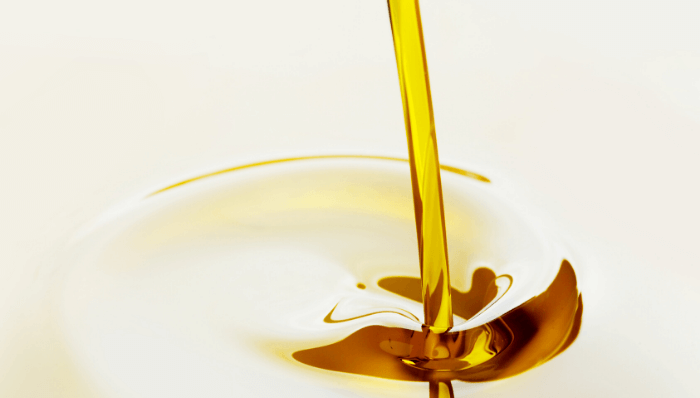

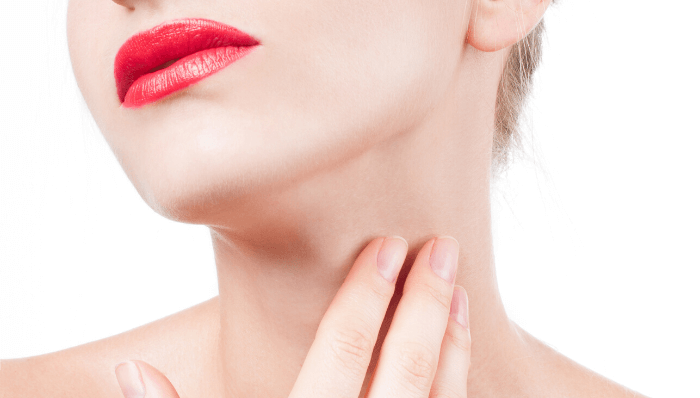

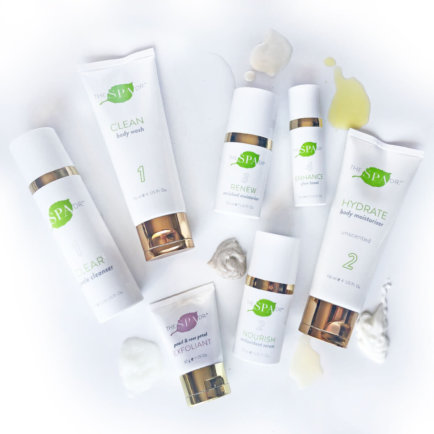
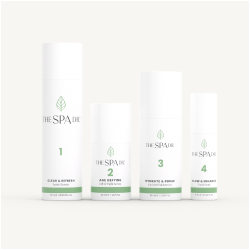
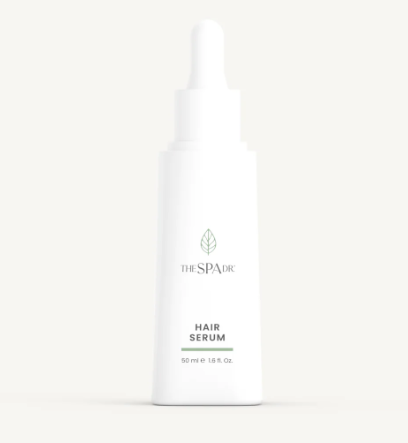
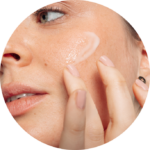

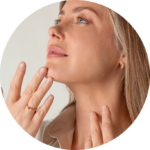

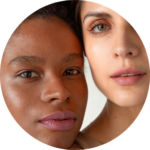
Reader Interactions